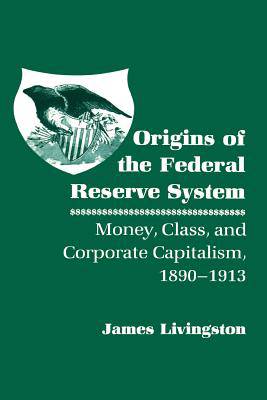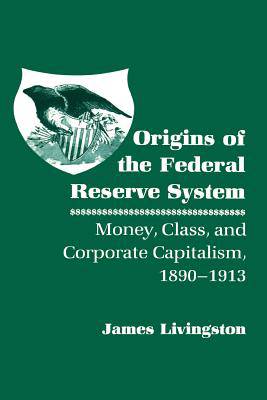
- Afhalen na 1 uur in een winkel met voorraad
- In januari gratis thuislevering in België
- Ruim aanbod met 7 miljoen producten
- Afhalen na 1 uur in een winkel met voorraad
- In januari gratis thuislevering in België
- Ruim aanbod met 7 miljoen producten
Origins of the Federal Reserve System
Money, Class, and Corporate Capitalism, 1890-1913
James LivingstonOmschrijving
The rise of corporate capitalism during the late 19th and early 20th centuries has long been a source of lively debate among historians. In Origins of the Federal Reserve System, James Livingston approaches this controversial topic from a fresh perspective, asking how, during this era, a "new order of corporation men" made itself the preeminent source of knowledge on all significant economic issues and thereby changed the character of public and political discourse in the United States.
The book seeks to uncover the roots of the Federal Reserve System and to explain the awakening and articulation of class consciousness among America's urban elite, two phenomena that its author sees as inseparable. According to Livingston, the movement for banking and monetary reform that led to the creation of the Federal Reserve System played an important role in the general transition from entrepreneurial to corporate capitalism: it was during this struggle for reform that a group of business leaders first emerged as a new corporate social class.
This interdisciplinary account of the social, cultural, and intellectual Origins of the Federal Reserve System offers both a discussion of the sources of modern public policy and a persuasive study of upper-class formation in the United States. The book will interest a wide audience of historians, economists, political scientists, sociologists, and others who wish to understand the rise of America's corporate elite, the class that has played a large-if not dominant-role in 20thcentury America.
Specificaties
Betrokkenen
- Auteur(s):
- Uitgeverij:
Inhoud
- Aantal bladzijden:
- 250
- Taal:
- Engels
Eigenschappen
- Productcode (EAN):
- 9780801496813
- Verschijningsdatum:
- 7/11/1989
- Uitvoering:
- Paperback
- Formaat:
- Trade paperback (VS)
- Afmetingen:
- 168 mm x 230 mm
- Gewicht:
- 353 g

Alleen bij Standaard Boekhandel
Beoordelingen
We publiceren alleen reviews die voldoen aan de voorwaarden voor reviews. Bekijk onze voorwaarden voor reviews.









